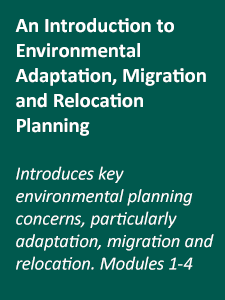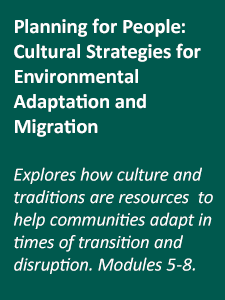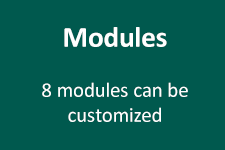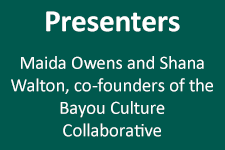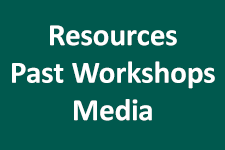
With all the environmental issues and disruption that people are dealing with now, why focus on culture?
Culture provides a sense of well-being and community connections that help people adapt during disruption. People with strong ties to culture and community report higher life satisfaction. Culture is a source of social cohesion.
What will future generations wish we had done to save our cultures?
The Bayou Culture Collaborative offers workshops and presentations on the role of culture and the human dimension of environmental change to help communities answer these questions. We share strategies to help environmental planning consider a group’s or region’s culture which provides a sense of well being and community connections when disruptions occur. Strategies are appropriate for all communities whether people are staying in place, relocating, or welcoming newcomers. Targeted audiences include planners, environmentalists, arts and culture networks,and the general public.
Workshops can be customized depending on the group’s needs and expertise. They can include up to 8 modules with up to 7 activities that help attendees discover not only their personal story, but their community’s story. The workshops can help people who don’t see themselves as planners to envision their role in planning. A workbook includes activities, key points, and references. Workshops can vary from 1.5 to 3 hours. Shorter presentations are available. American Planning Association CEUs are available.
Want More Information?
For more information about how these workshops can help your network, contact Maida Owens, maidaowens@gmail.com.
BAYOU CULTURE COLLABORATIVE WORKSHOPS
An Introduction to Environmental Adaptation, Migration and Relocation Planning
This workshop introduces key environmental planning concerns, specifically adaptation, migration, and relocation planning, with a focus on understanding how cultural strategies can help communities address disruption and adapt whether they are staying, migrating, or receiving newcomers. The overview includes a discussion of why people migrate and migration variables. This workshop is particularly useful for individuals new to this work, and offers tools planners can use to help a group delve deeper into understanding the realities of local risks and the complexities of migration and relocation. Modules include: Environmental Change Overview/Assessing Risk; Migration Overview: Adapting in Place; Why Migrate? and Migration Variables; Including Culture in Migration Planning; and Using Stories as Tools.
Participants will
- Learn about adaptation and the human dimension in order to participate in the community resilience conversation
- Learn key concepts such as adaptation, mitigation, originating and receiving communities, community-driven decision making.
- Learn how the human dimension, such as attachment to place and decision making about migration, is an integral part of the community resilience conversation
- Understand issues related to migration within the United States
- Learn what community culture is and its role in our sense of well-being
- Learn cautions and understanding of the complexity of adaptation/migration planning.
An earlier version of this workshop was recorded and is available on the LFS YouTube Channel: https://www.youtube.com/watch?v=XNLX4Rqm9fs
Planning for People: Cultural Strategies for Environmental Adaptation and Migration
This workshop explores how culture and tradition are resources planners can use to help their communities adapt in times of transition and disruption. The workshop includes an overview of what culture and tradition mean for planners and offers examples of uses of culture that build community cohesion. In this interactive workshop, participants use tools provided to evaluate their own community’s risk of migration or possibility of receiving migrants and then identify possible partners and cultural resources. Finally, the workshop offers strategies to activate their community culture as a resource during periods of transition and disruption – including tools such as storytelling, public art, celebrations of heritage, community projects, and more. These strategies are equally valuable for those staying in place and those migrating, both newcomers and long-term residents.
Participants will
- Learn to define “culture” for policymakers and explain why culture is a way to mitigate disruption
- Identify aspects of their community culture, as well as learn how to gather information to create a fuller picture of their community culture
- Learn cultural strategies and resources to activate culture by bringing forward traditions (at both the individual and community levels)
- Learn strategies to help those adapting in place as well as those in receiving communities to welcome newcomers
- Become aware of resources and potential partners to implement plans for their community
- Begin work on a plan outlining steps to mobilize culture to mitigate disruption in their communities
An earlier version of this workshop, with an emphasis on the arts, was recorded as The Role of the Arts in Climate Adaptation and Migration.
Workshop Modules
Modules 1-4 are especially useful for individuals new to this work or to level up a group in order to delve deeper. Modules 5-8 focus on arts and culture as tools and cultural strategies that communities can use to foster a sense of place and well-being.
- Using Stories as Tools
- Environmental Change Overview, Assessing Risk
- Migration Overview: Adapting in Place, Why Migrate, Migration Variables
- Why include culture in planning
- Activating culture: Project spotlights and case studies
- Cautions and Understandings
- Preparing Receiving Communities
- Taking action: Plan to Plan
Presenters
Maida Owens is a folklorist who directed the Louisiana Division of the Arts Folklife Program from 1988 to 2025. She is a co-founder of the Bayou Culture Collaborative, an initiative of the Louisiana Folklore Society. Her focus is on the impact of migration upon our cultures in the face of disruption.
Shana Walton is an anthropologist, professor emerita at Nicholls State University (Thibodaux, LA) and a co-founder of the Bayou Culture Collaborative (BCC). She is co-author of Bayou Harvest: Subsistence Practice on the Gulf Coast, a documentation of hunting, fishing, and gardening practices in Coastal Louisiana and winner of the 2025 James Mooney Award. Currently, she is a project coordinator for the BCC and the South Louisiana Wetlands Discovery Center.
Resources, Past Workshops, Media
Resources
BCC Plan to Plan Worksheet.docx
Arts, Culture, and Climate Migration Resource List
Selected Workshops and Presentations
- Cultural Sustainability Conference, 2025, Leeds University, UK
- MR2025 conference, 2025 Columbia University, NY
- Louisiana State of the Coast Conference, 2025 New Orleans.
- PastForward Conference 2024, New Orleans
- SouthArts 2024. via Zoom. The Role of the Arts in Climate Adaptation and Migration.
- National Assembly of State Arts Agencies 2022. Kansas City, MO
- American Folklore Society 2023. Portland, OR
- Louisiana Arts Summit via zoom. 2023. Part 1: Introduction to Climate Adaptation and Migration
- Appalachian Funders Network, via zoom. 2023
- Louisiana Preservation Conference 2023. Lake Charles, LA
- Louisiana Folklore Society 2023. New Orleans
- Main Street Now conference 2022. Richmond, VA
- Louisiana Main Street Managers 2022. New Orleans
- Society for Applied Anthropology 2024 via zoom. Louisiana Folklore Society Responds to Louisiana’s Environmental Changes.
- Goucher College 2025. Culture’s Role in Understanding Climate Migration: Stories from the Bayou
- Coalition to Restore Coastal Louisiana. Coastal Leadership Institute, 2025. Houma
- Science + Art Collaborations: Engaging Communities in the Gulf, a pre-conference workshop at the Gulf of Mexico Conference, 2024, Tampa, FL.
See a List of Past BCC Presentations, Publications, and workshops
Media about BCC
- Carter, Lucie Monk. 2024. “Making Room,” featured Haley Blakeman, Jonathan Foret, and Maida Owens in the cover story for the 64 Parishes’ winter 2024 issue.
- As climate change fractures communities, folklorists help stitch them back together: From Appalachia to the Bayou to the desert Southwest, here’s how culture can teach us about adapting to a warmer world. Grist. March 7, 2024. Katie Myers.

The South Louisiana Wetlands Discovery Center is revolutionizing how we think, teach and learn about Louisiana’s disappearing coast. Our programs focus on developing adaptation skills in our young people. By doing so, we ensure the survival of our culture along with our workforce.
CONTACT
7910 Park Ave.
Houma, LA 70364
985-580-7289
jforet@slwdc.org

